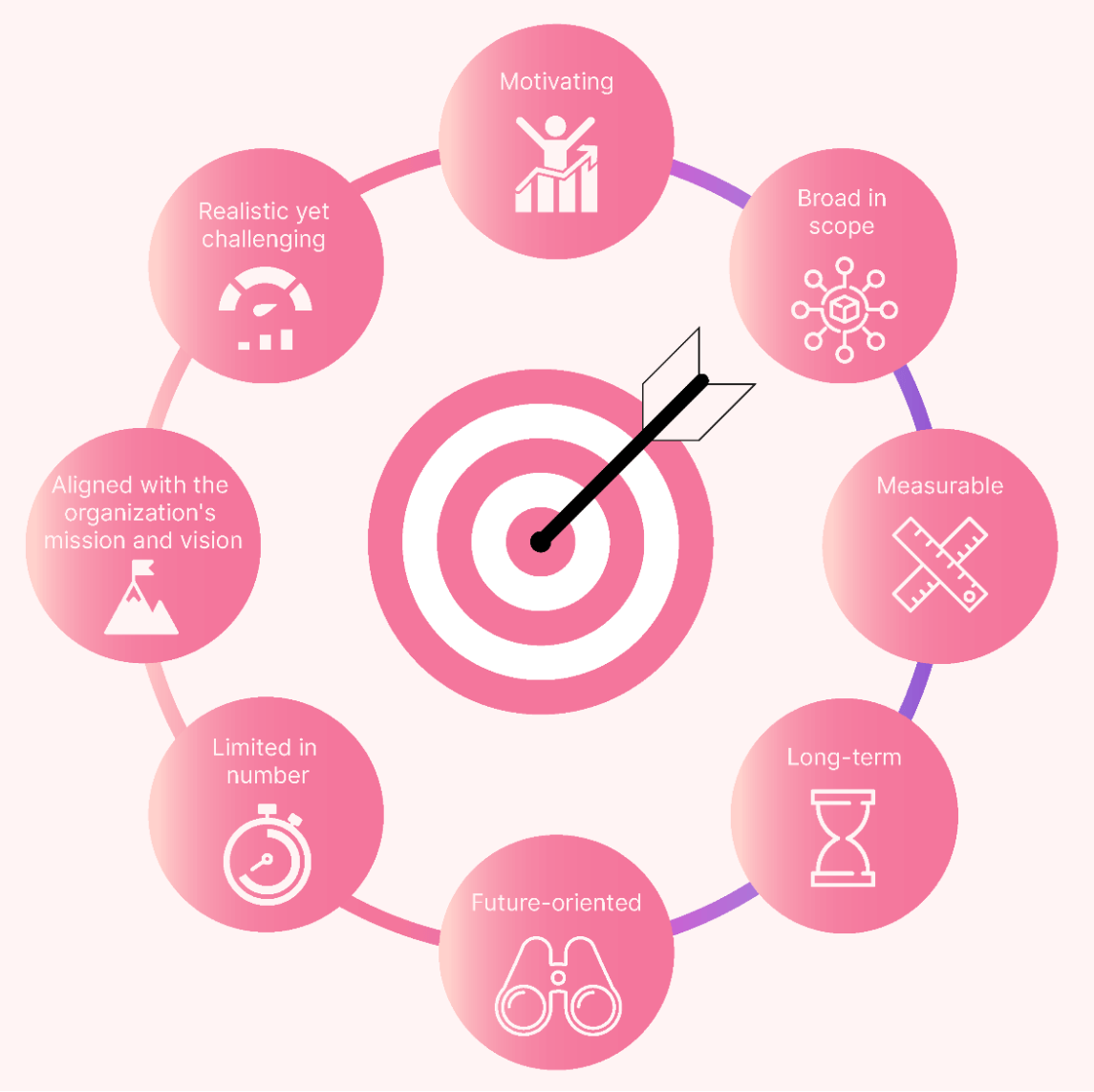Growing your team or business often means facing a big question: what’s the smartest way to hire and manage people, especially if you’re working across different areas or trying to keep costs down? You’ve got three solid options to consider Employer of Record (EOR), Professional Employer Organization (PEO), and staffing agencies each with its own style. Figuring out how an EOR, a PEO, and a staffing agency stack up against each other is key to picking the one that fits your company best. This guide lays it all out: what each one does, the good and the bad, how they’re different, and tips on choosing the right path for you.
By the time you’re done, you’ll have a handle on: What’s an EOR? What’s a PEO? How are they different from staffing agencies? And most importantly, which one’s the best match for your business.
What is an Employer of Record (EOR)?

An Employer of Record (EOR) is a third-party organization that legally employs workers on your behalf. In an EOR arrangement, the EOR becomes the official employer for your employees in administrative and legal terms handling payroll, taxes, benefits, and compliance with labor laws while you direct the employees’ day-to-day work. This model is especially useful for companies looking to hire in a new country or region without setting up a local entity. The EOR assumes all formal employment responsibilities, ensuring you meet local employment regulations everywhere you operate.
Advantages of using an EOR
- Full legal compliance – The EOR manages and ensures compliance with local labor laws, tax regulations, and employment requirements in the employee’s country or state. This significantly reduces the risk of penalties or legal issues when hiring abroad.
- Simplified global expansion – You can quickly hire international talent without establishing a foreign subsidiary. The EOR’s infrastructure lets your company enter new markets faster and with less upfront cost.
- Administrative burden offloaded – Payroll processing, income tax withholding, social contributions, benefits administration, and other HR paperwork are all handled by the EOR. This frees up your HR team’s time and cuts through bureaucratic red tape.
- Focus on core operations – With the EOR taking care of employment logistics, you can focus on managing the employee’s tasks and integrating them into your projects, rather than worrying about HR administration.
- Risk mitigation – The EOR assumes legal employer liabilities. For example, if there are any issues with contracts, terminations, or audits, the EOR is responsible for handling them in compliance with local laws, protecting your company from direct exposure.
Disadvantages of using an EOR
- Higher service costs – EOR services typically charge a fee per employee or a percentage of payroll for the convenience and risk they assume. This can be more expensive than handling HR internally, especially for a larger workforce concentrated in one country.
- Less control over certain HR policies – Because the EOR is the legal employer, some decisions (e.g. setting up local benefits packages or employment terms) might follow the EOR’s standard practices. You may have limited flexibility to customize certain policies (though you still control work assignments and salaries within legal bounds).
- Not always ideal for local hires where you have an entity – If you already have a company established in a country and only need to hire a few employees there, using an EOR might be unnecessary. In such cases, directly employing staff or using a PEO could be more cost-effective.
- Potential for less company branding – Since the employee’s official employer is the EOR, there could be slight confusion in terms of who the employee “works for” on paper. Companies must work a bit harder to instill company culture and ensure the employee feels truly part of the team, not just an EOR contractor.
Best for: International hiring and compliance. An EOR is ideal for companies aiming to hire abroad or in remote locations quickly without creating a legal entity. It’s also well-suited for any business that wants to outsource HR administration and compliance for certain employees, ensuring all local laws are followed by a dedicated expert.
What is a Professional Employer Organization (PEO)?

A Professional Employer Organization (PEO) is an HR service provider that enters into a co-employment arrangement with your company. In simpler terms, when you partner with a PEO, your employees are legally employed by both your company and the PEO. The PEO shares employer responsibilities: it typically becomes the employer of record for tax and payroll purposes, while you continue to direct the daily work and make business decisions. PEOs are commonly used by small and mid-sized businesses to outsource time-consuming HR tasks such as payroll processing, benefits management, and regulatory compliance without losing control over managing their employees’ work. This model can also be referred to as “employee leasing” or HR outsourcing through co-employment.
Advantages of using a PEO
- Streamlined HR administration – The PEO handles payroll, tax filings, and routine HR paperwork on behalf of your company. This reduces administrative overhead so your team can focus on strategic work rather than forms and filings.
- Access to better benefits – By pooling many client companies’ employees together, PEOs can often offer big-company benefits (health insurance plans, retirement plans, worker’s comp, etc.) at lower cost. Small businesses gain access to comprehensive benefits packages that would be difficult or expensive to obtain on their own.
- HR expertise and compliance support – PEOs are experts in human resources and labor law compliance. They help ensure you are following employment regulations (e.g. OSHA, EEOC, labor standards) and handle tasks like workers’ compensation, unemployment insurance, and reporting requirements correctly. This shared responsibility can reduce legal risks for your business.
- Reduced employer liability – In a co-employment setup, the PEO shares or even assumes certain liabilities (for instance, some legal risks in employment administration). They often maintain things like employment practices liability insurance, which can protect against certain lawsuits.
- Focus on core business – With a PEO taking care of HR processes and issues, business owners and managers can devote more time to core operations and growth. Essentially, you have an outsourced HR department supporting your team.
Disadvantages of using a PEO
- Co-employment complexity – Co-employment means shared control. You must coordinate HR decisions with the PEO. For example, if you want to change a policy or if an issue arises with an employee (leave, termination, etc.), the PEO is involved. This can sometimes slow down processes or lead to less direct control over HR matters than handling them in-house.
- Requires existing local entity – PEOs typically operate within a single country or region, and your business usually needs to be legally registered in that jurisdiction to use a PEO. A PEO cannot help you hire in a new country where you have no entity; in that scenario, an EOR would be required. This limits using a PEO for international expansion unless you set up local businesses first.
- Costs and contracts – PEOs charge service fees (often a flat fee per employee or a percentage of payroll). While often cost-effective for the services provided, these fees add to your expenses. Additionally, you’ll usually sign a contract with terms that might include notice periods to leave the PEO, minimum usage durations, or even potential penalties if you exit the arrangement early.
- Less individualized HR policies – Since the PEO handles many companies, it may have standard ways of managing benefits or policies. Your ability to provide highly tailored or unique benefits might be constrained by what the PEO offers. You might also need to align with the PEO’s payroll schedule or systems, which could involve some adjustments to your processes.
- Shared employee data and control – Your employee information is managed by the PEO’s systems. Some companies might have concerns about data sharing and confidentiality, although reputable PEOs maintain strong data security. Also, because the PEO is a co-employer, employees technically have an additional “employer” which could cause confusion if not communicated well.
Best for: Domestic HR outsourcing for small/mid-sized businesses. A PEO is best suited for companies that want to outsource HR functions and benefit administration for employees in a country where the company is already established. If you are a growing business that needs better benefits, payroll management, and HR compliance support – and you are comfortable with a co-employment model – a PEO can be a cost-effective solution. It’s an excellent choice when you want to focus on core business operations while a partner handles HR intricacies.
What is a Staffing Agency?

A staffing agency (also known as a recruitment agency or RPO recruitment process outsourcing ) is a firm that helps companies find and hire talent. Unlike an EOR or PEO, a staffing agency does not typically become the employer of record for long-term employees (except in the case of temporary placements). Instead, they focus on sourcing, screening, and placing candidates into roles at your company. Staffing agencies maintain large candidate databases and expertise in recruiting, which can significantly speed up the hiring process for open positions. They can assist with various hiring needs, including temporary staff (temp workers), temp-to-hire (contract-to-permanent) roles, or direct hires (permanent placement).
It’s important to note the distinction: staffing agencies recruit and facilitate hiring, but they usually do not manage ongoing HR administration for those employees once placed. In a temporary or contract assignment, the staffing firm might pay the worker and handle payroll taxes (making the agency the legal employer for the duration of the contract). For direct hires, the candidate joins your company’s payroll from day one (your company is the employer). In both cases, the agency’s primary role is to deliver qualified candidates; any long-term employment responsibilities remain with the actual employer (you or the agency for short-term temps).
Advantages of using a Staffing Agency
- Faster hiring process – Staffing agencies excel at quickly finding qualified candidates. They maintain talent pools and use dedicated recruiters to fill positions efficiently. This is invaluable when you need to hire for a role urgently or handle a sudden increase in workload.
- Access to specialized talent – Many agencies specialize in certain industries or job types (IT, accounting, healthcare, etc.). They can connect you with skilled professionals and niche talent that might be hard to find through standard job postings. Their recruiters often know where to source passive candidates and have extensive networks.
- Flexibility in workforce scaling – For companies with seasonal needs or project-based work, staffing agencies offer flexibility. You can bring in temporary workers for short-term assignments and scale down after without the obligations of permanent employment. This helps control labor costs and adapt quickly to changing business demands.
- Reduced hiring overhead – The agency takes care of advertising jobs, initial screening, and often preliminary interviews. This saves your HR team time. For temp hires, the agency also handles onboarding paperwork, payroll for the temp workers, and statutory contributions during the contract period.
- Try before you commit – In temp-to-hire arrangements, you get to observe a worker’s performance on the job before deciding on a permanent hire. This can improve long-term hiring success by ensuring a good fit.
- Lower immediate cost for recruitment – While agencies charge fees, using a staffing firm can be cost-effective for short-term needs or single hires. You avoid the cost of maintaining an internal recruiting team for occasional hires and pay fees only when you successfully hire a candidate.
Disadvantages of using a Staffing Agency
- No long-term HR support – Once a candidate is placed (especially for direct hires), the staffing agency’s job is essentially done. They do not manage HR tasks like ongoing compliance, benefits, or performance management for that employee. All employer responsibilities rest on your company after placement (except in temporary staffing scenarios).
- Potential higher cost per hire – Staffing agencies typically charge a placement fee (often 15%–25% of the hired candidate’s first-year salary for direct hires) or markup on hourly rates for temporary workers. While this might be cheaper than a bad hire, it’s an added cost to consider. Relying heavily on agencies for all hiring could become expensive in the long run compared to developing internal recruiting capabilities.
- Candidate familiarity and cultural fit – Since the staffing agency is an outside party, there’s a chance that candidates they recommend might not perfectly fit your company culture or expectations. They try to vet for fit, but they don’t know your company as intimately as you do. You may need to invest time to ensure the recommended candidates align with your values and long-term plans.
- Less control over hiring process – When using an agency, you’re outsourcing a lot of the hiring steps. While this saves time, it also means you have less visibility into how candidates are sourced and evaluated in initial stages. The quality of candidates depends on the agency’s understanding of your needs and their diligence. Miscommunication can lead to unsuitable hires or delays.
- Temporary workers’ commitment – If you use a staffing firm for temporary staff, note that short-term hires might have less loyalty or engagement with your company. They know they’re on a temporary assignment, which can sometimes affect motivation or performance. Additionally, juggling a workforce of contract workers can add complexity to team dynamics and planning.
- Branding and candidate experience – In some cases, the staffing agency represents your company to candidates at first. If the agency provides a poor candidate experience or doesn’t convey your employer brand well, it could reflect on your company’s reputation. It’s important to choose agencies that act as positive ambassadors for your brand.
Best for: Quick hiring and temporary staffing needs. Staffing agencies are ideal when you need to fill roles fast, especially for short-term projects, seasonal workloads, or when seeking specialized expertise that you can’t easily find on your own. They’re also useful for companies that do not have a dedicated recruiting team or want to save time on sourcing and initial screening. If your priority is to get talent in the door quickly or to remain flexible in how you scale your workforce, a staffing agency can be a valuable partner.
Key Differences Between EOR, PEO, and Staffing Agencies

All three models – EORs, PEOs, and staffing agencies – help companies with hiring and managing workers, but they do so in very different ways. Here’s a summary of the key differences:
- Legal Employer & Compliance Responsibility: An EOR becomes the legal employer of your workers for all administrative and legal purposes. They sign the employment contract with the employee and are responsible for compliance with labor laws, taxes, and payroll in the employee’s country. A PEO shares employer responsibilities with you (co-employment); the PEO might be the employer of record for tax filings, but your company is still the official employer for most other aspects, and you share liability. In contrast, a staffing agency is generally not the legal employer for your permanent hires. For temporary placements, the agency may act as the employer of those temp workers during the contract. However, staffing firms do not take on ongoing legal compliance for your core employees – their role is limited to recruitment (and short-term employment of temps if applicable).
- Scope of Services: EORs handle end-to-end employment administration – payroll, benefits, contracts, compliance, and often guidance on local employment practices. PEOs handle comprehensive HR functions – payroll, benefits, HR policy support, and compliance assistance – but typically do not recruit new employees for you. Staffing agencies handle recruitment and talent acquisition: sourcing candidates, vetting, and matching them to your job openings. They usually do not manage HR services or benefits (beyond paying a temp worker’s wages). Essentially, an EOR or PEO is an HR partner managing employees you’ve already identified, while a staffing agency is a recruitment partner helping you find employees.
- Use Cases (Domestic vs International): An EOR is often used for international hiring or remote workforce expansion. If you need to hire in a new country or state where you don’t have a legal entity, EOR is the go-to solution. PEOs are typically used domestically (or in regions where your business operates) to outsource HR for existing operations. If you plan to hire within your country (or a country where you’re registered) and just need help managing HR tasks, a PEO fits well. Staffing agencies are used both locally and sometimes internationally for recruiting, but importantly, if you hire someone abroad through a staffing agency, you’ll still need an entity or an EOR to handle compliance because the agency won’t cover that. Staffing is mainly about finding talent quickly, wherever they may be, but not about enabling you to legally employ in a new location.
- Duration of Involvement: When you use an EOR or PEO, it’s typically a long-term partnership for as long as you have employees under their service. They are continuously involved in handling HR matters for those employees (monthly payroll, yearly tax documents, ongoing compliance, etc.). With a staffing agency, the involvement is often short-term or one-off per hire. For direct hires, once the candidate is hired, the agency’s job is done (aside from any replacement guarantee period). For temp workers, the agency’s involvement lasts only for the contract duration of those workers.

- Control and Relationship with Employees: With an EOR, your company manages the employee’s daily work and performance, but the employment contract is with the EOR. Employees might technically be on the EOR’s books, yet for all practical purposes they work for you. With a PEO, employees sign employment documents under your company (in co-employment, often they acknowledge both entities). You maintain direct relationship and control, and employees are fully ingrained in your company structure; the PEO is invisible in day-to-day work (it works in the background on HR tasks). With a staffing agency, if it’s a permanent hire, the employee is entirely yours and the agency fades out after placement. If it’s a temporary hire, the worker knows they are contracted via the agency; your control over a temp’s work is still there in terms of assigning tasks, but employment issues (pay, etc.) go through the agency. In terms of company loyalty and culture, EOR and PEO hires are essentially your employees (just with external support), whereas staffing agency temps might feel less attached to your company.
- Cost Structure: An EOR usually charges a flat monthly fee or percentage of the employee’s salary for providing their services (covering compliance, payroll, etc.). This is a continuous cost as long as that employee is engaged via the EOR. A PEO typically charges a fee per employee per payroll or a percentage of total payroll as an administrative fee; some also have setup fees or annual contracts. Staffing agencies charge recruitment fees – for example, a one-time fee for a successful direct hire (commonly a portion of the new hire’s salary), or an ongoing markup on a temp worker’s hourly rate (the agency keeps a margin above the worker’s pay). In general, staffing fees are transactional, tied to hiring events, while EOR/PEO fees are ongoing for HR management. Depending on your needs, one or the other could be more cost-effective: staffing agencies might cost less for a single hire, but if you consider the ongoing needs of employment (payroll, compliance), an EOR or PEO’s fees also cover a lot of value.
- Employee Benefits and Experience: With an EOR, employees typically receive benefits (health insurance, retirement plans, etc.) through the EOR’s offerings, which often comply with local standards and sometimes may not be identical to those at your headquarters. PEO employees get benefits via the PEO’s plans, which can be robust; the experience for the employee is that they enroll in benefits through a PEO portal, but they still feel like an employee of your company for daily work. With staffing placements, if the person is a direct hire, they get your company’s benefits; if they are a temp on the agency payroll, they might receive limited or basic benefits from the agency (and sometimes none if it’s short-term). This means long-term career development and benefits are strongest for employees under PEO or direct hire models, whereas EOR covers basics in foreign locales and temp staffing is purely short-term.
In summary: EOR vs PEO vs Staffing Agencies can be boiled down to employment management vs HR support vs talent acquisition. An Employer of Record is your plug-and-play legal employer solution – perfect for compliance and global expansion. A PEO is your HR department for hire, sharing employer duties to ease your administrative load for existing operations. A staffing agency is your external recruiter, helping you find the right people (and in the case of temps, supplying workers for limited durations). The right choice depends on whether you need help employing people, managing HR for people, or finding people.
How to Choose: EOR vs PEO vs Staffing – Which Is Right for You?

Selecting between an EOR, PEO, or staffing agency comes down to your company’s specific situation and priorities. Consider the following scenarios and recommendations to guide your decision:
Choose an EOR if:
- You need to hire employees in a country (or state/region) where your company is not established. EORs are ideal for international expansion or hiring remote talent across state/country lines without setting up a new legal entity.
- Compliance and risk reduction are top priorities. If you’re worried about following local labor laws, tax regulations, or handling employment contracts correctly in a new location, an EOR provides peace of mind by taking on those responsibilities.
- You want to onboard employees quickly in a new market. EORs already have entities in many locations, so they can hire and onboard someone in days, whereas establishing a branch or subsidiary could take months.
- Your company is smaller or doesn’t have extensive HR resources, and you prefer to outsource HR administration completely for certain workers. An EOR lets you focus purely on managing the person’s work output, not the paperwork.
- You have a short-term project in another region and need to hire someone just for that duration without long-term setup. An EOR can employ the person for the project period and terminate the employment per local law when the project ends.
Choose a PEO if:
- Your business is operating domestically (or in a country where you’re registered) and you want to streamline HR, payroll, and benefits for your existing team. PEOs are great for handling HR functions in your home country (or multiple states) so you don’t have to build an HR department from scratch.
- You have a small or medium-sized enterprise (SME) and want to offer better benefits to attract and retain talent. By joining a PEO, your employees can get access to high-quality health insurance, retirement plans, and other benefits available through the PEO’s group plans, making your company more competitive as an employer.
- Administrative tasks are overwhelming your team. If management and staff are spending too much time on payroll issues, insurance, or compliance paperwork, a PEO can take that burden off your plate.
- You are comfortable with a co-employment arrangement and willing to share certain employer responsibilities. For instance, you don’t mind that employees will fill out onboarding paperwork from the PEO and that the PEO’s name might appear on paychecks or tax documents, as long as day-to-day work life is unchanged.
- You want to focus on your core business growth without neglecting HR. A PEO can be a long-term partner that scales with you – as you hire more employees, the PEO continues to manage the HR side, letting you concentrate on strategy, sales, product development, and other key areas.
Choose a Staffing Agency if:
- You need to fill a position (or multiple positions) quickly and you don’t have the time or resources to source candidates yourself. Staffing agencies can present you with vetted candidates in a fraction of the time it might take your internal team.
- You are looking for temporary or contract-based employees. For seasonal surges, special projects, or interim cover (like maternity leave), a staffing firm can provide temp workers who have the skills you need and can start immediately.
- You require specialized talent or hard-to-find skill sets. If you have a niche role (e.g., a specific tech stack developer, a certified specialist, etc.), a recruiting agency that specializes in that field can tap into their network to find qualified candidates you might not reach via typical job postings.
- Your company lacks a dedicated HR/recruitment team or your team is stretched thin. Outsourcing the recruitment process to an agency ensures the hiring process keeps moving forward, even if your internal team is small.
- You want to try out candidates before committing to a permanent hire. Using temp-to-hire arrangements through a staffing agency lets you observe a candidate on the job. If they perform well and fit your culture, you can convert them to a full-time employee (often with no placement fee after a certain period, depending on your agreement with the agency).
- Cost-wise, you prefer to pay per hire rather than an ongoing service fee. If your hiring needs are infrequent or variable, paying a one-time fee to an agency for each successful hire might be more economical than paying monthly for a PEO or EOR service when you’re not actively hiring.
Final Thoughts:
There is no one-size-fits-all answer in the EOR vs PEO vs staffing agency debate – each model serves different business needs. An Employer of Record shines when you need a compliant hiring solution across borders or want to offload employment logistics entirely. A PEO is a strong choice for ongoing HR support and better benefits infrastructure within your established operation. A staffing agency is invaluable for rapid talent acquisition and flexible workforce management.
Before deciding, assess your company’s current situation and strategic goals:
- Are you expanding into new territories or managing a distributed team? Consider an EOR for the smoothest entry.
- Is your HR workload growing cumbersome and you’d like to outsource it while keeping your team in-house? Consider a PEO to become your HR partner.
- Do you have pressing hiring needs or fluctuating staff demands? Consider partnering with a staffing agency to fill the gaps quickly.

In many cases, companies might even use a combination of these solutions. For example, you could use a staffing agency to find a candidate overseas, and then employ them through an EOR; or use a PEO at home for HR management while occasionally tapping staffing firms for temporary projects. The key is to understand each model’s strengths and limitations.
By understanding the differences and evaluating your needs against those strengths, you can confidently choose the right hiring model. Making the right choice will help your business remain agile, compliant, and competitive in the quest for top talent and efficient growth. With the right partner – be it an EOR, PEO, or staffing agency – you’ll set the foundation for a successful and stress-free expansion of your team.













